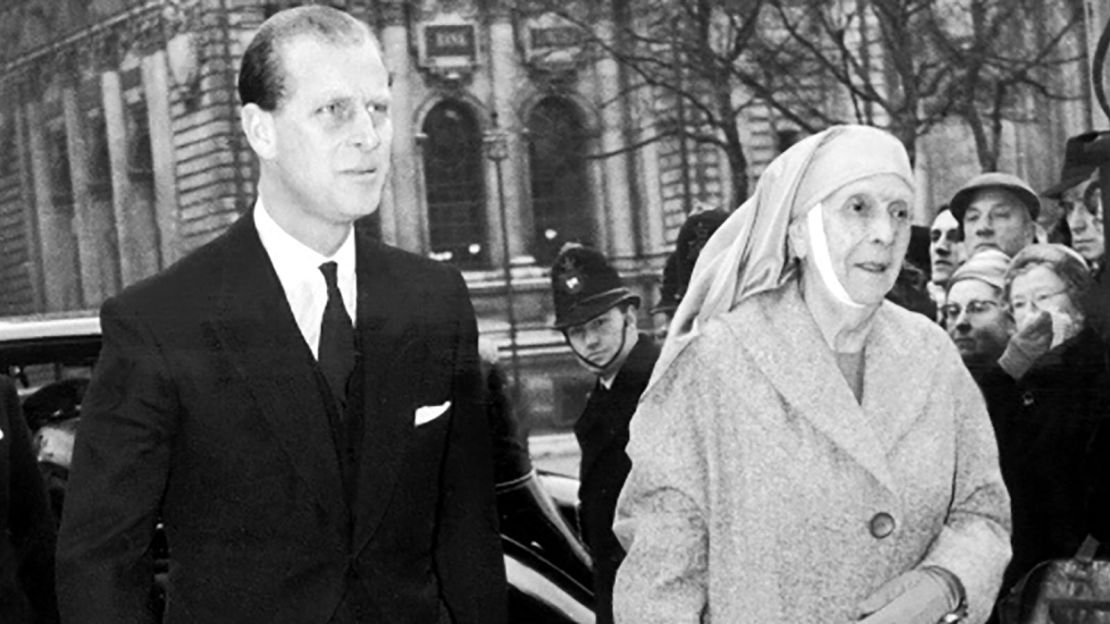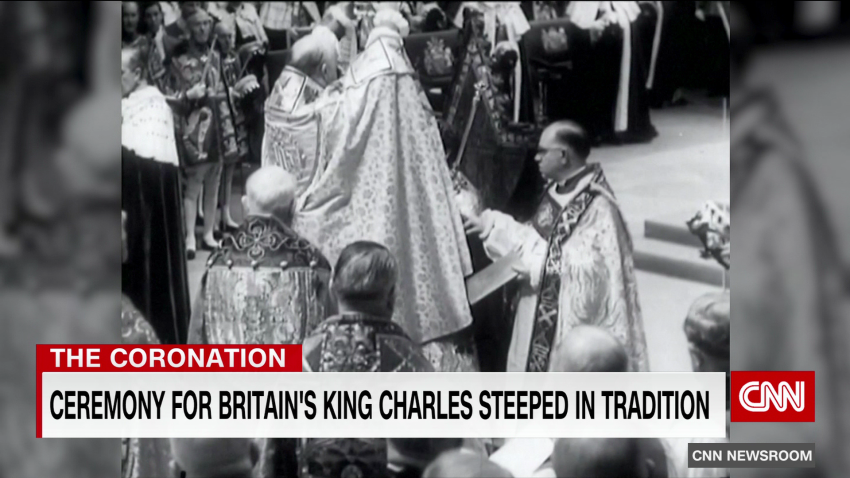Editor’s Note: Richard Hurowitz is the author of “In the Garden of the Righteous,” published by HarperCollins in January 2023. He is a writer, publisher of the quarterly magazine The Octavian Report and chief executive officer of Octavian and Company LLC, an investment firm. The opinions expressed in this commentary are his own. View more opinion at CNN
After seven decades of waiting, it is fair that King Charles III might want his coronation to reflect centuries of tradition but also bear a personal stamp.

We will see this twin phenomenon in the “chrism oil” to be used to anoint the king in the ceremony on May 6. It is an olive oil modeled on centuries of use but also subtly reflecting not only the king’s personal commitment to environmentalism and religious inclusion, but even more importantly the extraordinary heroism of one of his closest family members, his paternal grandmother Princess Alice, who risked her life to rescue a Jewish family in occupied Athens.
The mixture the well-known environmentalist Charles selected to perfume the oil is similar to that used by his mother Queen Elizabeth II at her own coronation and with a long history prior, including orange blossom, rose and cinnamon, but replacing animal ingredients like must and ambergris with jasmine, neroli and sesame to make it purely plant-based.
The olive oil itself comes from Jerusalem: Charles is well known for his desire to be “Defender of Faith” for all his subjects and for his close ties to the Jewish and Muslim communities and to non-Anglican Christian denominations. As the Archbishop of Canterbury said in a statement, the oil from Israel “reflects The King’s personal family connection with the Holy Land and his great care for its peoples.”
Tracing the oil to Charles’ grandmother
And it is perhaps this family connection that is the most meaningful. The olives consecrated at the Church of the Holy Sepulchre were harvested from two groves on the Mount of Olives, one located at the Monastery of Mary Magdalene, where Princess Alice is buried.
In so remembering his grandmother – the mother of his father Prince Philip – the king honors one of the more remarkable royals of the last century.
Alice was also the great-granddaughter of Queen Victoria, who had been present at her birth in Windsor Castle in 1885, and which made her related to many of the great dynasties that ruled Europe. Her cousins included the Kaiser, the kings of Norway and Denmark, and the queens of Spain and Romania, and her aunt was the last Tsarina of Russia, Alexandra. Alice’s own marriage in 1903 into the Greek and Danish royal family marked perhaps the last great wedding of imperial Europe before it was destroyed by World War I.
It was another aunt who had married into the Romanov dynasty, Alice’s godmother the Grand Duchess Elizabeth Feodorovna, who had perhaps the greatest influence on the young princess. By the time Alice came to visit her in Russia for a royal wedding in 1908, the Duchess’ husband Sergei, a major figure in the court, had been assassinated three years earlier by a socialist.
The godmother who inspired Princess Alice
A saintly figure, Elizabeth believed the killing had been divine retribution for his decision to expel 20,000 Jews from Moscow. After a deep mourning period, she devoted herself to the poor and sick, selling off her jewels to found the Martha and Mary Convent for nurses. Alice was present at the laying of its foundation stone and, deeply inspired, threw herself into charity work when she returned to Greece.
Elizabeth met a tragic end with the Bolshevik Revolution and the murder of the Romanov family in July 1918. The Grand Duchess was thrown down a sixty-foot mine shaft by Bolsheviks, followed by hand grenades. Lenin was pleased, declaring, “Virtue with the crown on it is a greater enemy to the world revolution than a hundred tyrant czars.”
Princess Alice would never forget her aunt’s inspiration. Years later, when the Nazis invaded Greece, she opted to stay by herself to help her people. She managed to obtain medical supplies and, during the first bitter winter of occupation when food became scarce, she organized one of the largest soup kitchens in Athens, feeding 17,000 children. She also founded two orphanages, one for boys and one for girls.
A remarkable rescue
Most remarkably, she hid a Jewish woman and two of her grown children who had fled Salonica in the apartment on the top floor of her villa across the street from the Nazis. She had done nothing to endear herself to the Germans when they had paid her a courtesy call, asking what they could do for her.
“Take your troops out of my country,” she had told them, resulting in subsequent periodic harassment. For the entire occupation, Alice treated the Cohen family upstairs as honored guests and instructed her servants to give them the utmost respect and care. Had her actions been discovered by the Germans, the princess would have likely been sent to a concentration camp or shot.
When Athens was liberated in October 1944, the future British prime minister Harold Macmillan found Alice living in “squalid conditions,” having lost fifty pounds. She remained during the subsequent civil war and, selling off her possessions, founded the Christian Sisterhood of Martha and Mary for nuns, modeled on her aunt’s institution in Moscow.
Although she never took vows, she began dressing in a habit, as any viewer of The Crown will know (she did, however, continue to smoke and play canasta, as her mother noted).

The Mount of Olives resting place
Alice rarely spoke about hiding the Cohen family. When one of the Cohen brothers saw her in Rome on the way to the wedding of then-Princess Elizabeth and future Queen to her son Phillip in 1947 and thanked her, “she answered in minimizing her courageous action,” he later recalled. The story eventually became known to Alice’s younger brother, Lord Mountbatten, through a contact in the Royal Navy – who also knew the Cohens.
After the royal family’s exile from Greece in 1967, Alice lived for two years at Buckingham Palace. She died in 1969 and was buried at Windsor Palace. But almost twenty years later, her wishes were honored and she was transferred to the Mount of Olives in Jerusalem next to Duchess Elizabeth, whose body had been moved there shortly after her execution.
In 1993, Alice was given the high honor of being named a Righteous Among the Nations by the Yad Vashem Holocaust memorial in Israel for her heroism. The fate of the Greek Jews was among the worst in Europe, with more than 90% perishing. Were it not for Alice, the Cohens would surely have been among them.
At the ceremony, her son Prince Philip commented on his mother’s unusual reticence to speak about her actions, noting, “She was a person with deep religious faith and she would have considered it to be a totally human action to help fellow human beings in distress.”
At the coronation, when Charles is anointed, the oil used will thus have two special meanings. It will connect him to the long tradition of British monarchs, but it will also rightfully recall the amazing story of his grandmother Princess Alice and his deserved pride in this ancestry as well.






